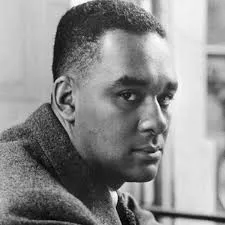
Richard Wright, a towering figure in American literature, is best known for his contributions as a novelist and essayist, but his poetry also holds a significant place in his literary legacy. Wright’s poems, especially his haiku, delve into themes of identity, nature, and existentialism, reflecting his keen observational skills and profound understanding of the human condition.
Richard Wright Biography
Richard Wright Poems
Richard Wright’s poetic works are deeply introspective, characterized by their simplicity and profound insight. While Wright is celebrated primarily as a novelist, his collection of haiku demonstrates his mastery of the poetic form. Below is a selection of his notable poems and collections:
1.“Haiku: This Other World”
Wright’s most famous poetic work, this collection features 817 haiku that explore themes of nature, human suffering, and spiritual reflection. His haiku follow the traditional 5-7-5 syllable structure and reflect his deep connection with the natural world.
2.“Between the World and Me”
This haunting poem portrays a lynching through vivid imagery and a chilling narrative voice. It is an unflinching exploration of racial violence and its psychological scars.
3.“A World I Never Made”
This poem reflects Wright’s sense of alienation and disconnection from the world, themes that pervade his broader body of work.
4.“Bluebird”
A lesser-known but evocative poem that captures fleeting moments of beauty in nature.
5.“Shadows”
In this meditative piece, Wright examines the impermanence of life and the human condition.
6.“The River”
A metaphorical exploration of life’s journey, reflecting on its unpredictability and the inevitability of change.
7.“Loneliness in the City”
This poem captures the isolation and despair of urban life, drawing from Wright’s experiences in Chicago.
8.“The Cat”
A minimalist reflection on the behavior of a cat, offering insight into human and animal instincts.
9.“The Cloudburst”
This haiku portrays a sudden rainstorm, combining natural imagery with themes of renewal and cleansing.
10.“The Empty Bowl”
A poignant meditation on hunger, survival, and human resilience.
Wright’s poetry showcases his ability to distill profound truths into concise, evocative imagery, leaving a lasting impression on readers.
Richard Wright Quotes
1.“Men can starve from a lack of self-realization as much as they can from a lack of bread.”
2.“All literature is protest. You can’t name a single novel that isn’t protest.”
3.“The artist must bow to the monster of his own imagination.”
4.“I would hurl words into this darkness and wait for an echo.”
5.“Don’t leave inferences to be drawn when evidence can be presented.”
6.“The impulse to dream was slowly beaten out of me by experience.”
7.“I am what I think, and I think what I am.”
8.“Whenever my environment had failed to support or nourish me, I had clutched at books.”
9.“Literature is a struggle over the nature of reality.”
10.“Art is a form of political action.”
Richard Wright Facts
1.Richard Wright was born on a plantation in Roxie, Mississippi, and raised in extreme poverty.
2.He moved to Chicago during the Great Migration, seeking better opportunities and escaping the Jim Crow South.
3.Wright was a prominent member of the Communist Party, though he later distanced himself from it.
4.His novel Native Son (1940) was the first book by an African American author to be a Book-of-the-Month Club selection.
5.Black Boy (1945) is one of the most widely read American autobiographies.
6.Wright wrote over 4,000 haiku, 817 of which were published in Haiku: This Other World.
7.He moved to Paris in 1947 and became a French citizen, living there until his death.
8.Wright was deeply influenced by existentialism and had close relationships with French intellectuals like Jean-Paul Sartre.
9.His poem “Between the World and Me” inspired the title of Ta-Nehisi Coates’ acclaimed book.
10.Wright’s work continues to influence discussions on race, identity, and systemic oppression in literature.
